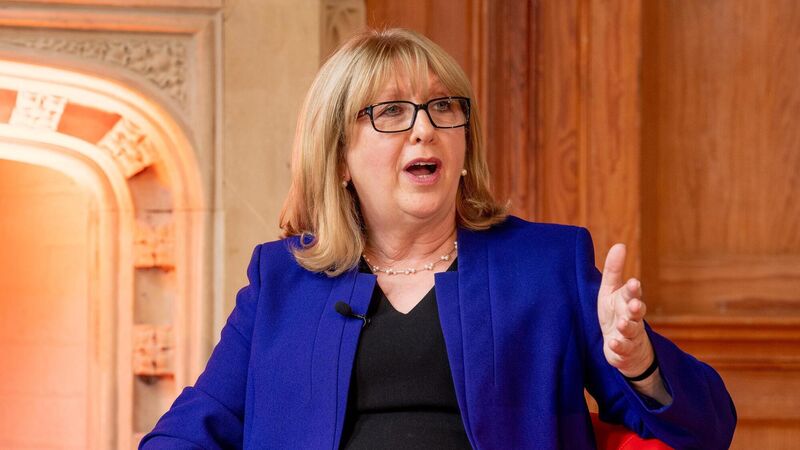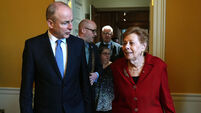'Equality is a right, not a favour' — Mary McAleese urges Church to reform 'oppressive' laws

Former President of Ireland Mary McAleese said Pope Francis’s initiation of a synodal journey was prompted by the rapidly escalating disillusionment of the faithful for many reasons, among them the persistence of stark internal inequality and lack of respect for the human rights of individual members within the Church.
The former President of Ireland, Dr Mary McAleese, has said the laws that regulate life inside the Catholic Church do not bear scrutiny, are often oppressive, and are not consonant with the Universal Declaration of Human Rights and the UN Convention on the Rights of the Child.
Speaking on Friday at an alternative synod in Rome, she said it was remarkable that “not once since the Universal Declaration was published in 1948 has the Church asked itself how it should implement the Declaration or the Convention in the internal laws applicable to church members”.













